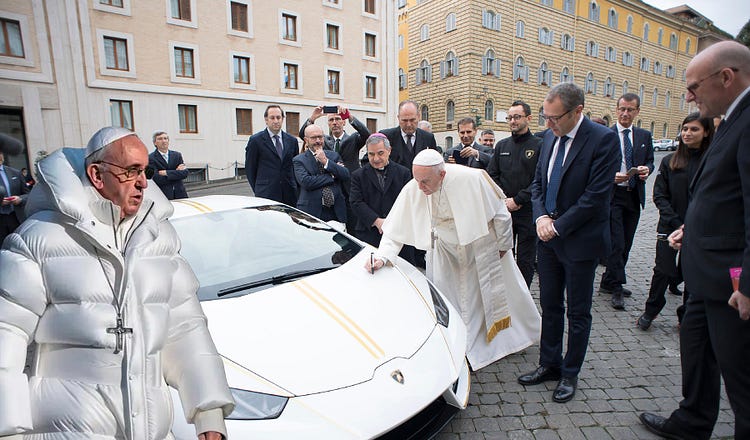We’re in Danger of Losing Our Most Important Resource

One of these photos of the pope is fake, and the other is real—but how can you tell? (Photo collage by The Free Press)
It’s not oil or eggs or toilet paper—but something far more precious.
130
Here are some news stories from recent days. Can you tell me what they have in common?
Scammers clone a teenage girl’s voice with AI—then use it to call her mother and demand a $1 million ransom.
Millions of people see a photo of Pope Francis wearing a goofy white Balenciaga puffer jacket, and think it’s real. But after the image goes viral, news media re…
Continue Reading The Free Press
To support our journalism, and unlock all of our investigative stories and provocative commentary about the world as it actually is, subscribe below.
$8.33/month
Billed as $100 yearly
$10/month
Billed as $10 monthly
Already have an account?
Sign In

